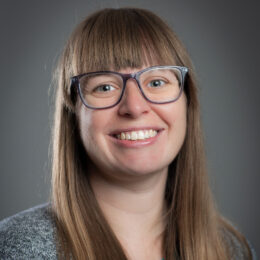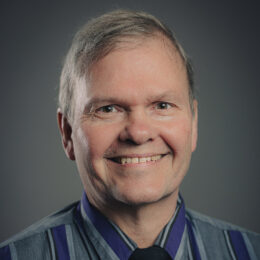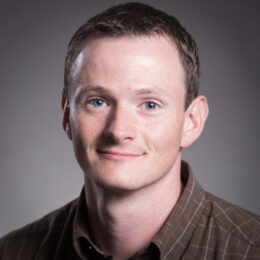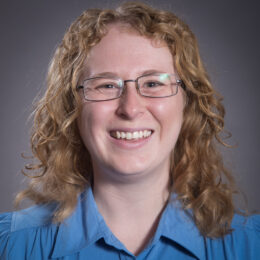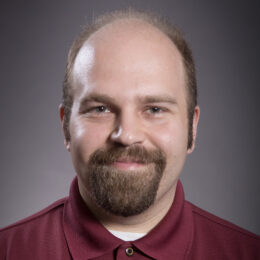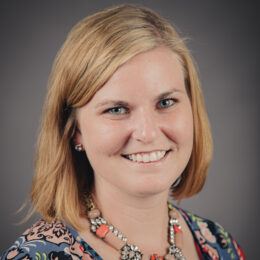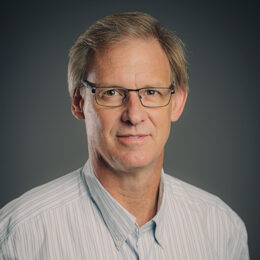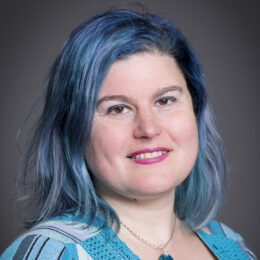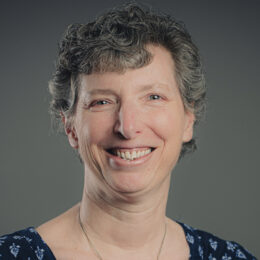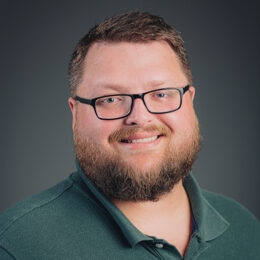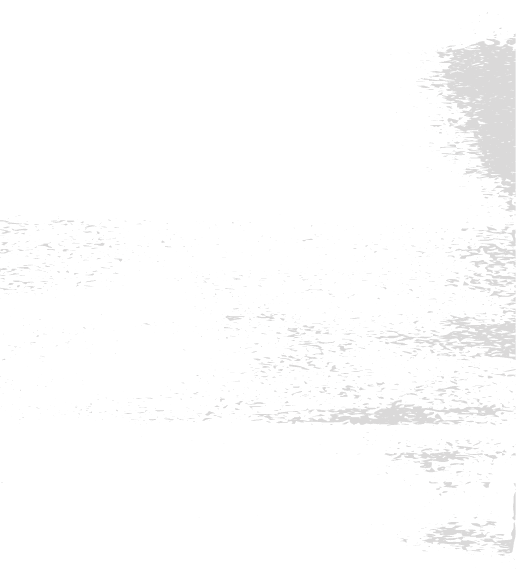Biology-Chemistry
Doctor, pharmacist, dentist–these careers and many more depend upon an understanding of biology, chemistry and how the two interact.
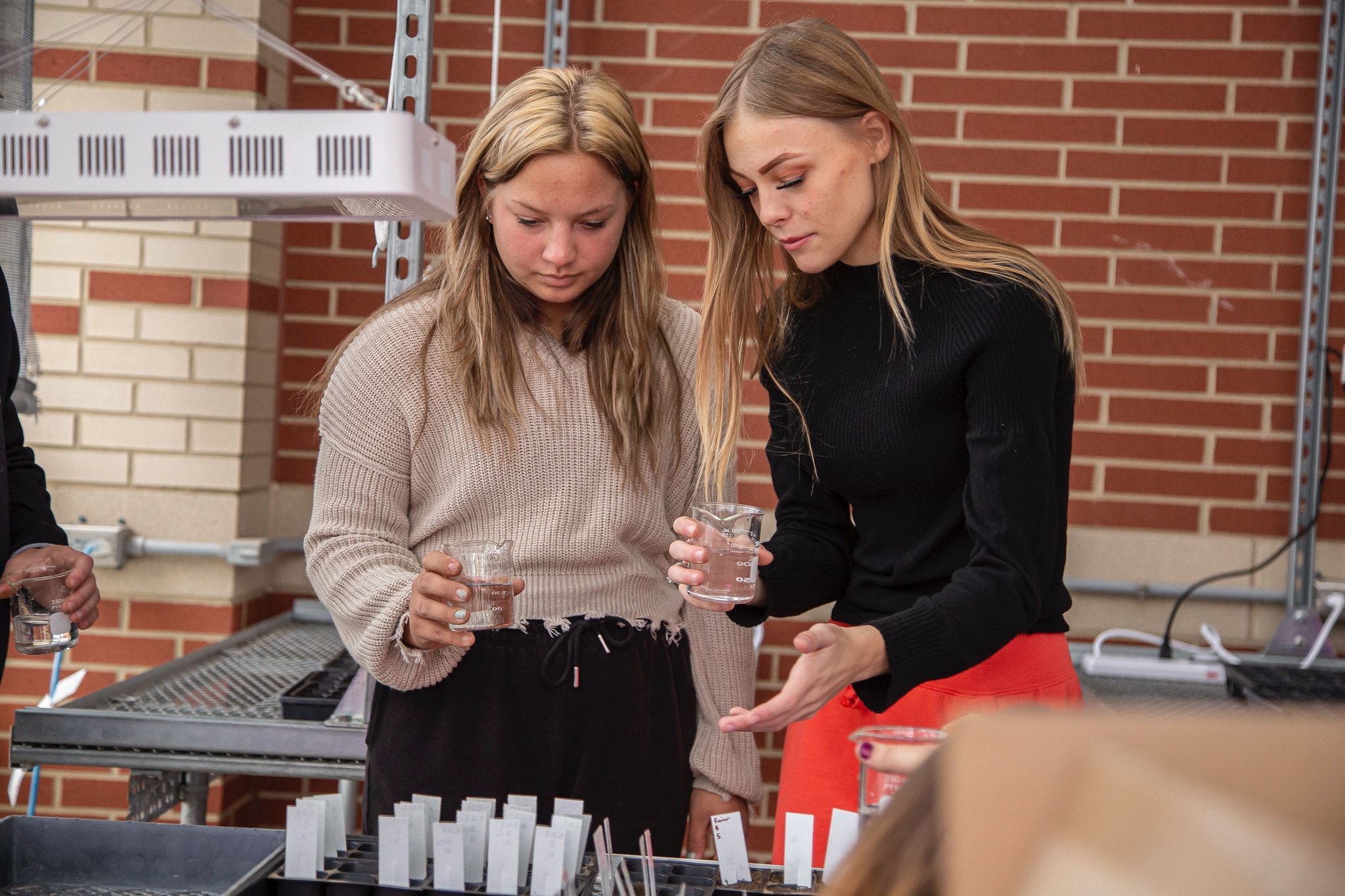
Prepare for a Health Care Career With Expertise in Both Biology and Chemistry
Manchester University’s Bachelor of Science in Biology-Chemistry is half a biology degree and half a chemistry degree, with a special focus on the chemical reactions occurring in our own bodies.
With this knowledge, you can pursue any number of health care professions, from doctor to pharmacist to veterinarian, as well as teach or pursue research.
Between our rigorous curriculum, dedicated advising and experiential learning opportunities, we’re committed to setting you up for future success.
Program Information:
Major | BS
- 59-63 Credit Hours
Location
- North Manchester

We went to Guatemala, and… shadowed doctors as they helped Indigenous communities. Because I am fluent in Spanish, I was an interpreter… alongside the doctor and another interpreter that would go from Mayan to Spanish.
Brisa Arriaga-Banda, Biology-Chemistry, Class of 2022

Why Choose MU for Biology-Chemistry?

Opportunities for hands-on experience
Every biochemistry major will complete an internship, practicum or research experience before they graduate, guaranteeing opportunities for hands-on practice.
Interested in getting even more experience on your resume? We also offer a special medical practicum during January Session in which you can work in a health care clinic in an underserved community in Central America.
Focus on career preparation
A class on STEM careers and a career-focused senior seminar are both required for the biology-chemistry major. That’s in addition to robust advising informed by the nuances of the health care profession you’re more interested in.
Small class sizes
Classes for this major are generally 15–30 students, and our faculty are dedicated to cultivating a culture of accessibility. This means you’ll get ample face-to-face time with your professors, especially since labs are always taught by professors and never graduate students.
Numerous learning resources
We have everything you need to delve deep into the world of biochemistry, including fully equipped labs with professional-grade instrumentation. Plus, you’ll have access to all the same high-level scientific literature as our Pharm.D. students.
Research opportunities
Choose from several summer research opportunities, including the Faculty-Student Summer Research Program, the Miller Student Research Scholarship and the Biology Summer Research internship. Spend your summers getting hands-on experience in biochemistry while working closely with our expert faculty.
Early Acceptance
Manchester University helps you think about the next step now. Undergraduate students enrolled in the Biology-Chemistry Program can take advantage of MU’s unique partnership with Lake Erie College of Osteopathic Medicine to gain early acceptance into the LECOM Doctor of Osteopathic Medicine, Doctor of Dental Medicine, or Doctor of Podiatric Medicine programs.
Early Assurance
Manchester University Fort Wayne provides a seamless transition from the undergraduate program into pursuing your Doctor of Pharmacy, Master of Pharmacogenomics, or earning a dual degree combining both these disciplines.
What You Can Do with Your Biology-Chemistry Degree
Physician
Carefully diagnoses, compassionately treats, and expertly manages patients’ complex medical conditions.
Physician Assistant
Physician Assistants diagnose, treat, and prescribe under physician supervision across medical settings.
Graduate Student
Pursue advanced degrees in healthcare, research, or academia.
Science Educator
Inspire future scientists as a high school chemistry teacher.

Average Starting Salary for Biology-Chemistry Degree Holders
Earnings potential is significant for people who complete a biology-chemistry major. According to the U.S. Bureau of Labor Statistics (BLS), doctors make a median salary of $229,300, dentists a median salary of $159,530 and pharmacists a median salary of $132,750.
If you choose to enter the workforce immediately upon graduation, you’ll still be able to earn a comfortable living. The BLS found that graduates with a biology major earn an average of about $70,000 a year, while chemists earn an average of $81,810.
Source: Bureau of Labor and Statistics using the median salary for doctors

Career outlook for Biology-Chemistry majors
Our biology–chemistry students graduate fully prepared to either enter the workforce or pursue an advanced degree. Notably, our graduates’ acceptance rate to medical school is especially high at 79 percent–a big difference from the national average of 40–45 percent.
Meanwhile, we have an 88 percent acceptance rate to dental school, a 99 percent acceptance rate to pharmacy school and a 96 percent acceptance rate to other health care professional schools.
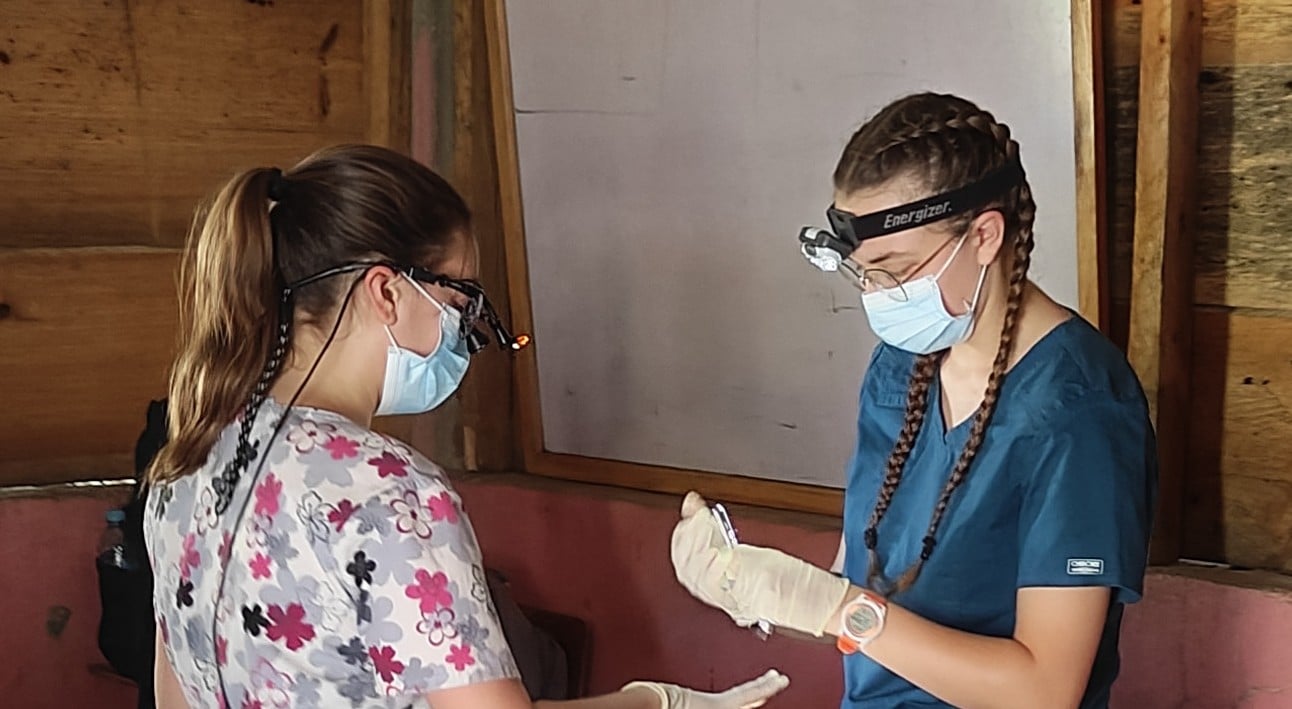
How the Biology-Chemistry Program Supports Your Growth
Classes
The curriculum for the biology-chemistry major combines the best of biology and chemistry, as well as a few physics courses to round out your studies. Learn foundational scientific concepts, including microbiology, anatomy and dedicated courses in biochemistry.
Then, conclude your four years with an experiential learning course that takes the form of an internship, research project or practicum experience. This guarantees you’ll get some real-world experience before graduation, making you a more attractive candidate to employers and graduate schools.
View all required classes for the Biology-Chemistry program.
BS/MS in PGx 4-Year Program
For students looking to pursue careers in healthcare professions or a clinical lab career, Manchester offers a unique 4-year Dual Degree program that combines the BS in Biology-Chemistry degree with a Master’s in Pharmacogenomics. Students enrolled in the BS in Biology-Chemistry degree apply in their sophomore year for this dual degree program, and complete the MS in Pharmacogenomics course requirements as part of their junior and senior years.
This pathway is designed to help students transition confidently into health professional degree programs or clinical lab careers.
Lake Erie College of Osteopathic Medicine Early Acceptance Program
Manchester University has partnered with the Lake Erie College of Osteopathic Medicine (LECOM) to establish an Early Acceptance Program for students pursuing professional degrees in osteopathic medicine, dentistry or podiatry after their undergraduate studies have been completed. The three professional programs open to Manchester students are LECOM’s Doctor of Osteopathic Medicine, Doctor of Dental Medicine, and Doctor of Podiatric Medicine.
While at MU
Phase I is the time spent enrolled in the Early Acceptance Program at Manchester University, completing an MU bachelor’s degree with at least 60 credit hours of full-time study at MU.
While at LECOM
Phase II is the time spent at LECOM and its associated clinical training sites.
Who Can Qualify?
LECOM will interview students prior to their enrollment at Manchester or within the first two years of study there. Each academic year, LECOM will accept up to the number of qualified students in the Early Acceptance Program as seen below:
- 5 students into the Doctor of Osteopathic Medicine program
- 5 students into the Doctor of Dental Medicine program
- 2 students into the Doctor of Podiatric Medicine program.
LECOM Locations
LECOM, with campuses in Pennsylvania, Florida and New York, is the nation’s largest medical college and provides student-centered pathways to prepare the next generation of health care professionals. Manchester is one of just three higher education institutions in Indiana affiliated with LECOM’s Early Acceptance Program.
Pre-Pharmacy
Is Pharmacy in your Future?
If you’ve yet to start college and you’re thinking about a career in pharmacy, here is some helpful information how to get there:
All pharmacists must attend an accredited pharmacy school for four years to earn a Doctor of Pharmacy (Pharm.D.) professional degree.
To qualify for admission into pharmacy school, you’ll first need to complete a pre-pharmacy curriculum at an undergraduate institution. You can do this in two years if you work hard and get good grades, so it’s possible to get your Pharm.D. degree in six years. Some students choose to complete a bachelor’s degree, which typically requires four years of undergraduate study, but it’s not required to apply for pharmacy school.
You can choose either path at Manchester, or you can enroll in our Fast Forward track and earn a bachelor’s degree, along with the credits to apply to pharmacy school, in just three years.
Whichever track you choose, you should know that admission to pharmacy school is not automatic. You’ll apply and compete against other bright and motivated students for a limited number of seats. A personal interview will decide if you’re to be granted admission based on your grades and potential to succeed at the next level.
Pharmacists must also be licensed, which requires passing two exams after graduation from pharmacy school.
Why Manchester for Pre-Pharmacy?
Manchester has a longstanding tradition for excellence in the sciences and preparing students for careers in health care. Our graduates are accepted into medical school and other health care programs at rates much higher than the national average.
Our biology-chemistry curriculum is structured for flexibility with key science classes front-loaded in your first two years. If you should decide pharmacy isn’t for you, you can change to a related career path that builds on all your earned science credits.
If you meet the requirements to enroll in our Early Assurance Program when starting your pre-pharmacy track, you can reserve a seat early in Manchester’s Doctor of Pharmacy. That’s a great reason to think Manchester for both pre-pharmacy and pharmacy!
Connect with Admissions
A great way to learn more about our undergraduate pre-pharmacy program is to fill out an inquiry form and make your connection to our Admissions Office. Or feel free to call 800-852-3648
Pharmacy Early Assurance Program
If you’re an incoming first-year undergraduate student interested in pursuing a path to becoming a pharmacist, the Pharmacy Early Assurance Program can help you get there more confidently, more assuredly.
Undergraduate Research Opportunities
Biology-Chemistry majors team up with professors on real research projects, gaining hands-on experience that builds confidence and prepares them for grad school, publications, or conference presentations.
January Session - Guatemala Medical Practicum
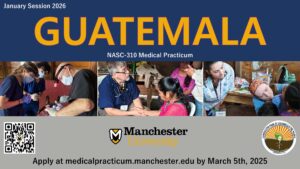
More information about the Medical Practicum
Medical Practicum Instagram
A Journey of Discovery and Service
The Medical Practicum at Manchester University is more than a three-credit class – it’s a life-changing experience for MU students. While the nearly three-week-long excursion to Central America is excellent for anyone who is motivated, it’s probably most useful for those with a future in health care who have yet to apply to professional and graduate schools. It often helps students to discover their true passions and steer their next steps.
The faculty-guided practicum partners students with a team of U.S. physicians, nurses and other health care professionals to serve patients of all ages in Central American communities, where quality care is in short supply. The practicum team has traveled through mountains, jungles and rivers – by bus, 4-wheel-drive vehicles and dugout canoes – to remote villages – often without running water or electricity.
Besides serving hundreds of patients with medical and dental needs, as well as animals in need of veterinary care, practicum students experience a culture very different from their own and observe first-hand the challenges faced by the people of this developing area.
History
Founded in 1981 by Dr. Ed Miller, the practicum turned 44 in 2025. After serving villagers in Nicaragua for more than 20 years, 2019 saw a relocation to Maya villages in Guatemala. Previous trips were made to Panama, Honduras, Dominican Republic, Costa Rica, and Guatemala. To date 468 Manchester students, along with 161 different health care providers and 72 other staffers have served more than 50,000 patients since its inception. Over half of practicum alumni have entered health care careers, including 104 physicians, 28 dentists, and 36 pharmacists.
An Embodiment of Mission
The practicum exemplifies Manchester’s mission to graduate persons who lead “principled, productive, and compassionate lives that improve the human condition,” and is a testament to Manchester’s distinguished reputation in the sciences and excellence in preparation for health care careers. Students and health care providers pay their own travel expenses, but it takes donations and grants to purchase medical and dental supplies.
Medical Practicum, January 2025
BY THE NUMBERS
- 16 students
- 14 providers: (5 physicians, 1 physician assistants, 1 nurse practitioner/certified nurse midwife, 2 pharmacists, 2 dentists, 1 4th-Year M.D. student, 1 resident, 1 laboratory technician, from the U.S.
- 3 dentists, 2 Mayan-speaking nurses, 7 interpreters, and 6 community development workers from Guatemala
- 1,559 medical consultations
- 2,839 prescriptions filled
- 454 dental extractions
- 323 lab tests performed
- $28,556 used for reduced price medicines and medical/dental supplies
- Thousands of dollars’ worth of medicines and medical/dental supplies acquired through donation
Miller Study Abroad Scholarship Award
Miller Study Abroad Scholarship Award
Because of their interest in international cultures, Ed and Martha Miller established this scholarship to aid students who desire to study and learn abroad. Any Manchester University undergraduate student enrolled full-time who plans to study abroad for a year, semester, or January Session is eligible, with preference given to natural and health science majors. Recipients will be selected on the basis of merit, motivation, and need. These award scholarships range anywhere from $500-1,500 and are in addition to the usual student aid and normal finances of the student. Award recipients must arrange and participate in the study abroad experience of a year, semester, or January Session between May 2024 – April 2025, prior to graduation. Failure to participate in the study abroad experience for which the award was given will result in the loss of funds. Students who are interested should apply before the deadline of March 25, 2024 to be considered.
Use this application link to apply for the Miller Study Abroad as well as the other Manchester University donor-supported study away scholarships.
Your application is on or before Monday, March 25. Please email the Office of Study Away at studyaway@manchester.edu if you have any additional questions.
Easley Medical Practicum Scholarship Fund
Assists one student per year in participating in the Manchester University Medical Practicum, with preference for a student from a rural area, interested in becoming a physician or physician assistant, who has not had the opportunity to travel outside the U.S., and with high merit.
Biology-Chemistry Research and Internships
These websites link to external sites that have lists of information about summer programs and details about applying.
Research – Local
- The Donald B. Miller Student Research Endowed Fund
- MU Summer Undergraduate Research Internships in Pharmaceutical Sciences
Research – National
- The National Science Foundation – REU program: The largest program and with the most possibilities.
- Summer Undergraduate Research Programs for Medical Education: Excellent summer programs for those pursuing healthcare/research careers.
- The National Institutes of Health: The largest biomedical research institution in the U.S.
- Institute of Education Sciences
- The National Science Foundation Centers for Technology: An additional research program of the NSF
- The Environmental Protection Agency
- The US Department of Agriculture
- ACS internship, co-op, and research
- Friends of Taiwan Summer Undergraduate Research Fellowship Program (FAQ)
Internships – Local
- Medical Practicum: A short term experience in global health
- Shepherd Summer Internship: Many healthcare-related placements
- Manchester University Office of Career and Professional Development
Internships – Regional
- Parkview Summer Internship Program
- Matthew 25 free clinic in Ft. Wayne
- 85 Hope free clinic in North Manchester
- Zimmer-Biomet: An orthopedic company in Warsaw, IN
Internships – National
- Zoetis: A global animal health company dedicated to supporting customers and their businesses in ever better ways.
- ACS internship, co-op, and research
Research Scholarships
Donald B. Miller Student Research Scholarship
This endowed scholarship award supports undergraduate research for any undergraduate students who are majoring in Chemistry or Biology-Chemistry.
An award in the amount of $2200-$4400 will compensate a 200-400 hour undergraduate research experience of the student’s choice (approval must be granted). The research experiences must take place between May 2025 and August 2025, prior to graduation. The research experience must also not have another associated stipend or wage. Priority is given to research experiences done on Manchester University’s campus, but off-campus research experiences are still eligible. The 2025 application is now open and due on April 24. Interested students should consult the documents below.
Student Application 2025
Faculty Recommendation 2025
The Donald B. Miller Student Research Fund was established by Ed and Martha Miller in 2018 to honor Ed’s brother, Don Miller (1930-2016), who graduated with distinction from Manchester College in 1952 with a B.A. in chemistry. He received his M.Sc. and Ph.D. from The Ohio State University, focusing his doctoral research on the synthesis, structure, and chemistry of the photodimers of β-nitrostyrene. He was a polymer research chemist for Conoco in Ponca City, OK, (1957-1965) and Stanford Research Institute, Menlo Park, CA, (1965-1974). He joined NASA Ames Research Center in 1975, where he worked on projects to determine concentrations of stratospheric ozone and nitric oxides. Next, he relocated to Oregon State University in Corvallis where he worked on environmental projects in the departments of Sanitary Engineering, Oceanography, Soil Science, and Forest Products (wood preservation) until his retirement. His research resulted in over 30 patents and research publications.
MU Summer Undergraduate Research Internships in Pharmaceutical Sciences
Meet the Faculty
FAQs About Manchester University’s Biology-Chemistry Degree
What is the structure of the Biology-Chemistry major?
What support is available for first-year students?
How does the program support students in preparing for their careers?
A class on STEM careers and a career-focused senior seminar are both required for the biology-chemistry major. That’s in addition to robust advising informed by the nuances of the health care profession you’re more interested in.
Biology-Chemistry Learning Outcomes & Mission
Program Learning Outcomes
1. Students will explore major biological, chemical, and physical sub disciplines and learn corresponding laboratory techniques.
Student Learning Outcomes:
- Students will apply biological, chemical, and physical concepts in a variety of lab exercises.
- Students will master biological, chemical, and physical concepts from the molecular to the organismal level.
2. Students will develop professionalism.
Student Learning Outcomes:
- Students will produce a CV or resume, and personal statement.
- Students will give oral presentations.
3. Students will acquire the ability to critically read, evaluate, and integrate.
Student Learning Outcomes:
- Students will read and evaluate concepts presented in scientific literature.
- Students will apply course-related concepts to address complex problems.
4. Students will apply biological, chemical, and physical knowledge addressing societal issues.
Student Learning Outcomes:
- Students will integrate from biological, chemical, and physical knowledge to make interdisciplinary connections with science and non-science fields.
- Students will demonstrate an awareness of the impact of biology, chemistry, and physics on the environment, society and other cultures outside the scientific community.
Biology-Chemistry Mission
Non-Discrimination in the Admission Process
Manchester University is committed to non-discrimination in campus life. The University does not discriminate on the basis of national origin, ancestry, race, color, age, sex, gender identity or expression, sexual orientation, familial status, religion, disability or veteran status in admissions or any area of campus life, including its educational programs, scholarships and loan awards, residence life programs, athletic programs, extracurricular programs, promotion and tenure policies and practice, and alumni affairs.
Manchester University is committed to carry out the provisions of Section 504 of the Rehabilitation Act of 1973 and the Americans With Disabilities Act, which provide for accessibility of University programs to the physically disabled.




